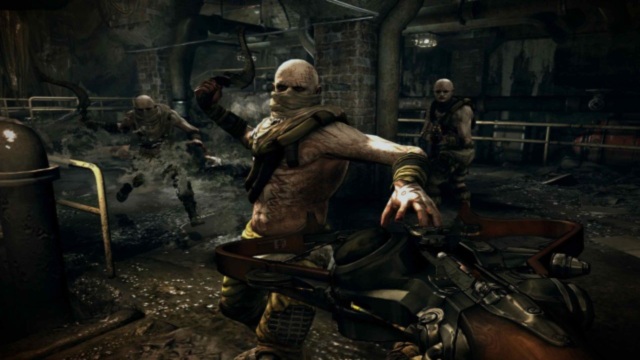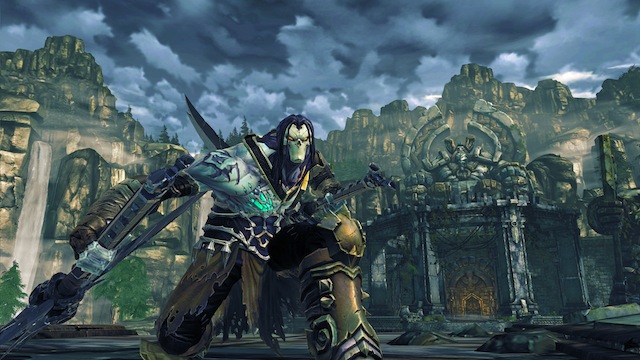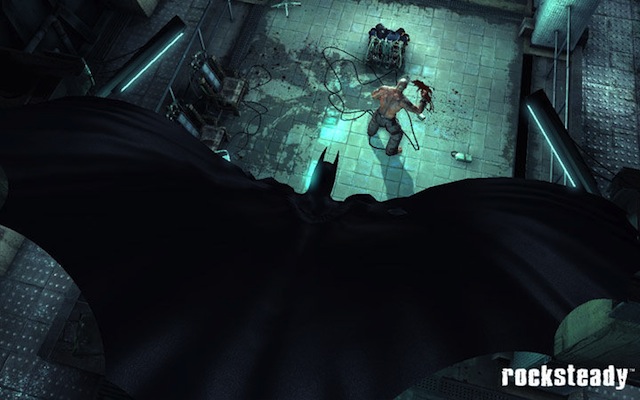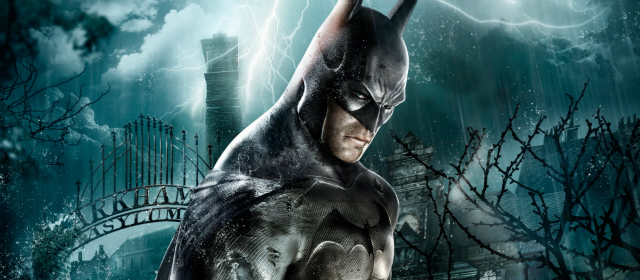As well as many other things, games allow you to escape. They give you the opportunity to do the impossible from your sofa and be someone your are not; a skilled warrior or powerful hero who sweeps women off their feet, wears necklaces made of dragon horn and props up wonky table legs with pirate doubloons.
That’s how it should be.
It’s just a shame that often the heroic avatars that I get to inhabit don’t often make me feel like that. In fact, they usually just remind me of the first episode of Futurama. Fry is frozen for 1,000 years, awakening with a chance of escaping his mundane life as a delivery boy. He is told that he can be an astronaut; his dream. An astronaut that delivers packages.
“Alright!! …. I’m a … delivery boy?!”
It’s the Delivery Boy corollary. Quest design in many games, particularly open world and role-playing games, offer the promise of an interesting world, where I’m powerful and interesting and ladies love me. However, it almost always turns out that I’m just a delivery boy, running errands for people who should fear me to their very core. Nothing undermines stories and characters quicker than this kind of quest design.

Recent examples of this are numerous. iD Software’s Rage casts you as a premium human, one of the best of the best, who walks into an apocalyptic wasteland having been frozen for years after a massive meteor strike. Your first move; to accept assassination and sabotage missions for a bunch of strangers who live in shacks and don’t to want anything other than the death of their neighbours. You walk around doing anything the locals would have you do for scant reward, never asking questions, never giving any evidence as to why a murdering, merciless scumbag like you would have been saved from the end of the world in he first place. Darksiders 2 wanders into a similar trap. Death is the most feared of the Horseman. He is the face of the end, the Pale Rider, an image painted into the nightmares of every culture since the dawn of man. However, he’s not so scary that a bunch of blacksmiths won’t refuse him any help until he restores their water and power. The Grim Reaper reduced, by a few clumsy writing decisions, to the role of council utility man. We are told that Death should be feared, but show me one character in that game who does fear him. The writing and narrative design undermines the character’s interactions, and so undermines the character and the story. I never saw Death as someone to be feared. I was told he was, but I was shown something else.
This isn’t an easy problem to solve. Games need objectives. If a game doesn’t have defined goals, it is a toy. Story-driven games require objectives as a way of channelling the player; complete an objective, progress the story. So here designers have to respect character and story, finding ways to incorporate it with gameplay, rather than just tacking it on. Otherwise what is the point of the character? What is the point of including a story? Just give the player a list of things to do, trust the gameplay will keep them interested and be done with it.

I think that the key is to use an established rule, a golden rule in Hollywood screenwriting, but one which also has roots in literature dating back centuries. The main character has to be active, not passive. Characters who are passive in the story react rather than act. They are boring. The interesting characters act. If, as a player, you feel that you don’t control the most exciting, interesting character in the game then that is a failure of design. Active characters make up their mind about how to do things, and then find their way of doing things. They are knowledgeable about the world, or are smart enough to go and find the information that they need. Think of Commander Shepherd. In Mass Effect the player gets to choose their actions, but the choices are always positive. Shepherd defies orders, carves his own path, and, whatever option the player selects, never asks permission. Whilst branching games do offer game writers different challenges, Shepherd is a great example of character who is an active participant in the story. Nathan Drake is another character who sets his own agenda. The crucial point here is when Drake explains where he needs to go next or when Shepherd decides what needs to be done to achieve the mission, they are still setting the player objectives. The fundamental structure of the game, the path through it, is the same; the player is still being a set an objective by the story. It is just the delivery method that is so much more interesting. It helps define the character and the character’s place in the world. When writing and characters start from this basis, worlds can be built in exciting ways. Relationships between characters start to inform what the player learns about the world. Think of Batman: Arkham City. Batman’s predefined relationships with his rogues gallery makes for fascinating interactions. Whether it is Joker, Mr. Freeze or Bane, the way that each character interacts with Batman gives a clear indication of what they think of the Dark Knight and how much, or little, they respect and fear him. The fact that Batman can force quests out of weaker foes by threats and fear only makes the story more interesting.
The damage done by quest design that casts the main character as a passive actor is not just limited to how the player views the main character, it corrodes other parts of the narrative just as viciously. The quest giving characters become glorified signposts who’s own needs are largely ignored as the player just skips past their dialogue to get back into questing. They aren’t interesting because they are obvious, the game flashing its mechanics with all the subtly of a Geordie Shore cast member at a Smirnoff promotional night. Part of mastering a game is fully understanding its systems. Once player’s know where to go for story and quests, especially if certain characters offer many quests, the incentive to explore decreases. The path of least resistance to story, objectives and rewards is obvious, so why search further afield. This also reduces the effectiveness of hiding story information with multiple characters spread around the world. Whilst they might offer interesting tidbits about the narrative, the effort finding it is rarely justified by the reward, so why bother searching and why bother listening?

By focussing on active positive protagonists who players are excited to portray, writers and developers can move away from the sort of quest design that sees exciting characters reduced to the role of a simple lackey. They can bring consistency and depth to a fascinating game world. The sort of interactive escapism that games offer, with the myriad of different gameplay experiences available, shouldn’t be limited by the feeling that my character is being pushed around when I am the person who wants to be doing the pushing. When I buy a game about being an astronaut, I want to chart my own course through space towards the final battle.
I don’t want to be a delivery boy any more.





